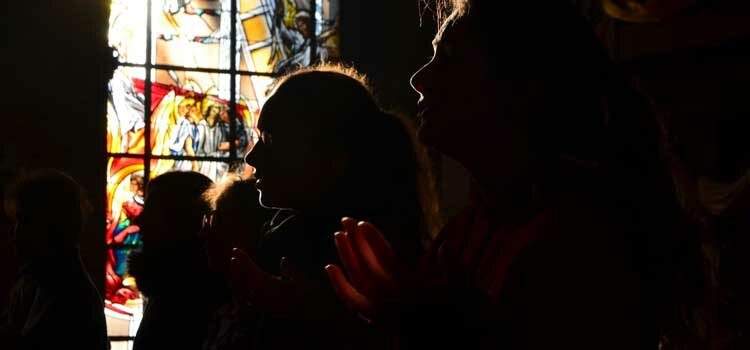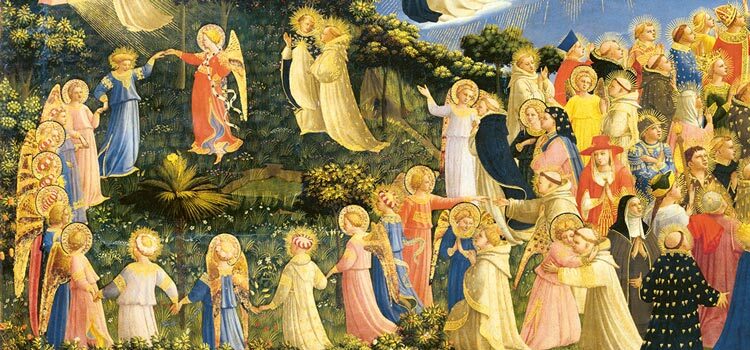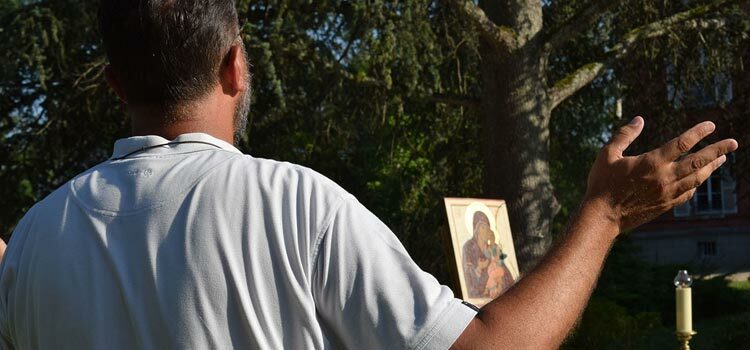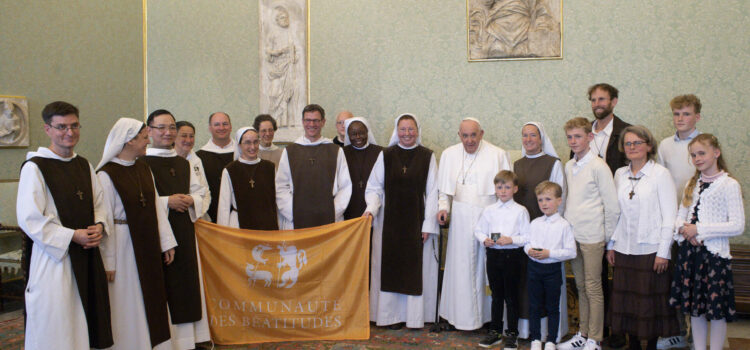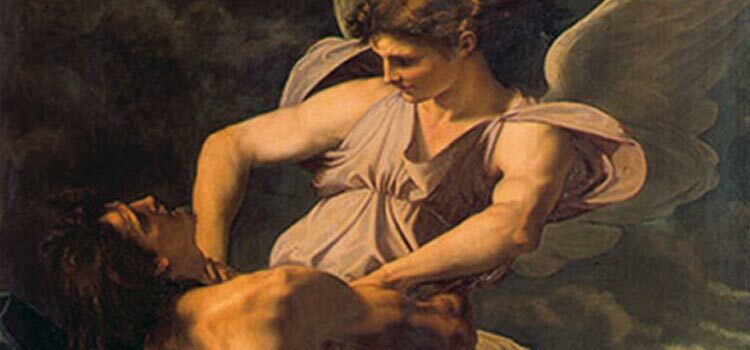Contemplative religious life marks the life of St John of the Cross. His was a radical yearning to enter into communion with God and through Him, with people and things. He chose a short and direct path to reach the divine light of perfect union with God, a path marked out by « nothings » and « nights » to cross in order to reach the joy of union.
Spiritual poverty is at the heart of his spirituality. It is in the « night » that the transition from the old man to the new one occurs. It is a progressive and total dipossession of self to make room for God. It is not a void for emptiness sake but leads to fullness. As the soul cannot, by itself, purify itself totally, the Holy Spirit steps in and does the job, but not without the soul’s consent.
Hence the different types of night : According to their form : active night (what man does himself with the help of divine grace) ; passive night (the work of the Holy Spirit ; the soul suffers and must consent).
According to their depth : night of the senses (man in his presence to the world by his sensitive faculties) ; night of the spirit (the spirit standing for man’s freedom in his relationship to God).
Night of the senses
In the beginning of the path, the soul is torn, pulled towards so many directions by what John calls the « appetites » which torment it, darken it and severing it from God. A first work of reform is essential : to calm and to set in order, so that the sensibility would be submitted to the spirit. It the active night of the senses : to say « no », to consent to the « nothings » because of the love of God. This implies being present to God and oneself, decentering from oneself and finding one’s true center in God.
But God will have to intervene directly through the passive night of the senses. “Let the soul only pay attention to loving God, without wanting to feel or see anything. God communicates himself passively to the soul, in the same way as the light communicates itself to ther one whose eyes are open » (II MC 15: 2).
When God finds the soul ready He intervenes, communicating more deeply, letting the sensitive being weaned and at a loss. Meditation becomes more or less impossible. The soul, in spite of a generalized disgust and afflicting anxiety for God, of not serving him, serves Him nevertheless with strength and courage. If it remains in silence and patience it perceives the divine communication, general knowledge, loving and deep, which fills it with love and leads to contemplation.
But our appetites being rooted ata deeper level, in our mind, the sensitive purification remains superficial, hence the need for nights of the mind.
The night of the spirit
We must enter the active night of the spirit without waiting for the night of the senses to end. But only the passive night of the spirit, in other words the flame of the Spirit which burns in the night, will be able to complete our purification.
John of the Cross insists on the importance of the virtues of faith, hope and charity, which make us live a theologal life, a life of relationship with God-Trinity. These virtues direct our way of life, that it may be true to the requirements of a divine union.
They engender darkness and emptiness in our spiritual faculties to give all the space to God. They purify, free and empty respectively our understanding, our memory and our will of what doesn’t belong to God transforming them in a perfect place to receive the divine communication.
Indeed, these different nights cut the branches without tearing out the roots, hence the importance of the passive night of the spirit.
God teaches the soul in secret and instructs it in the perfection of love. And because it is the loving wisdom of God, God himself brings about the main effects in the soul, because, by purifying and illuminating it, he disposes it for the union of love with God” (II, NO. 5, 1). It is the influence of God in the soul that reaches the root of the spirit. This night is called infuse contemplation or mystical theology, these expressions emphasizing the received and secret aspect of this influence. It is an empty passage through radical poverty.
But it is God who brings the faculties to a standstill through the communication of Himself. He operates in the soul an obscure contemplation, pure and luminous. He does not let it any availability to any other occupation. The soul discovers its miseries, through the strength of the divine light. But it is to cast them
out and destroy them that God shows them to him. Horrible night but also happy night, night of death and resurrection. Death of the old man, birth of the new man, entry into spiritual childhood which is life of divine sonship. This night is only light and love allowing the soul to taste the things from above and from here below, with a general freedom of the spirit, while leading it to a union of love.
On coming out of the night
Memory, understanding and will have undergone purification and passage through radical poverty. Now the soul comes out of the night, perfectly clothed in the triple livery of Christ : faith, hope and love.
« O night which guided me ! O night, more lovable than dawn ! O night which has united the Beloved with his loved one, the loved one being transformed in her Beloved » (NO,5).
Through these different nights, the soul becomes a participant in God, in his Trinitarian life. In the passion of the night, the soul not only suffers for its own purification but it enters, even more, into a participation in the Cross of Christ for the salvation of the world. Now the bride is ready and the Father fulfills his promise to come and dwell within her, together with the Son and the Spirit. Then the soul, like a bride, invites the Bridegroom: “Let us go and contemplate each other in your beauty… for your beauty will be my beauty and thus in your beauty I will appear as another you” (CSA 36; CSB 36, 5) until the day when the hour comes and the soul sings: “Uncover your presence to me, may the sight of your beauty kill me” (CSB 11).
The Quotation
“ In this glad night in secret ,for no one saw me. Not did I look at anything , with no other light or guide than the one that burned in my heart” St John of the Cross
| An author’s sharing : Sr Josette Barouki of the Carmel Saint Joseph, in Lebanon
The teaching of St John of the Cross reached me as a Carmelite and an Oriental woman. It awakened the “mystic” hidden in every human being and revived the desire to follow Christ radically. At no time is it a question of copying the path of John of the Cross or trying to imitate it step by step. It is up to each of us to chart our own path based on Christ, who is the Way par excellence. It is a call to commit ourselves and persevere in this way with great determination which implies also suppleness, patience and strength under the action of the Spirit ; a call to experience spiritual nakedness more than ever to find the Other and through it every other (person). |
To Go further…Only for today:
Books:
|
Find the previous articles in our “Life of prayer” series.
(publication edited by brothers and sisters of the Community of the Beatitudes – © rights reserved).
